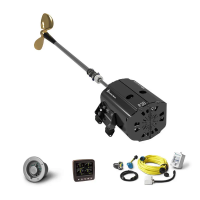Greg a very well thought out, educated analysis and presentation! Proud of you. Thank you.
I too believe gas/diesel will be largely interim replaced (may take a decade or two) by electric and electric will be replaced by hydrogen (my favorite largely untapped power source that has a pure water by-product) and ultimately, long after I am history, atomic energy.
I have been studying the hydrogen Honda cars that have been on the roads in California for some time. I have been on their list for purchase for a few years now. I can see hydrogen trucks, busses as well as automotive in the near future nationwide. Wish a major would build several hydrogen stations in Texas like California. I'd be on it like a tick.
I have an '85 Ericson with a Universal M25, 5421 Kubota that is original to the boat. Runs like a champ. No odors, squeezes a gallon of diesel to an amazing degree, just a hum of below deck noise and for all practical purposes, vibration free...at least it is not overtly noticeable, and leaves no smoke or glaze on the water. I am very happy with it. However, if it should bite the dust under my tutorship, I honestly do not know what direction I would go. By the way, she (yes a she, the engine is beautiful in my eyes) starts without hearing the starter on a fraction of revolution. My experienced friends are always amazed.
That's my story.

